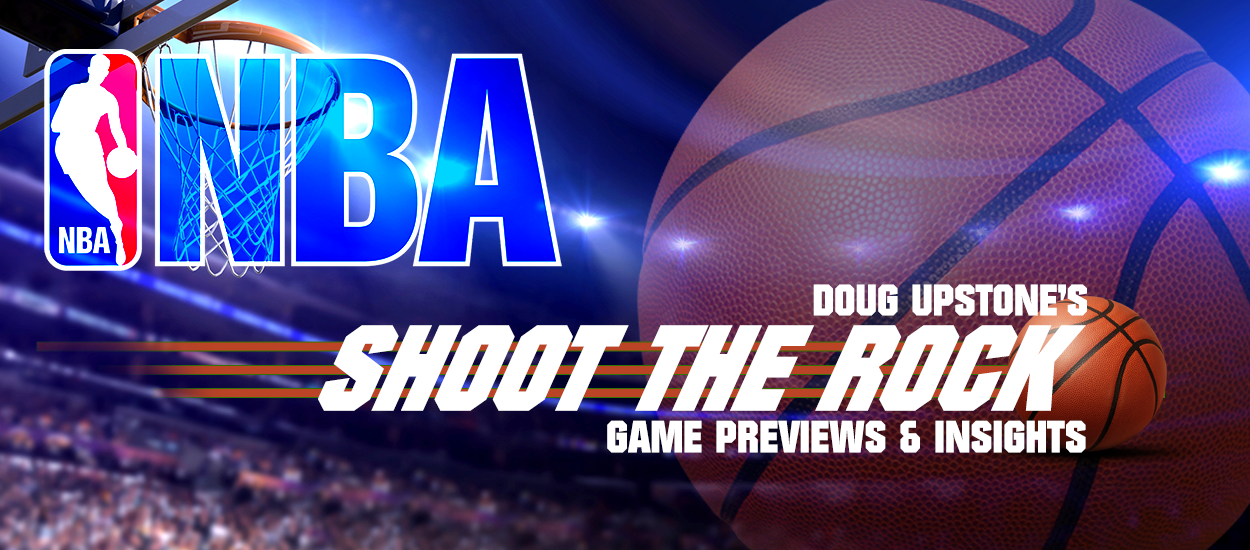In November New York State Senator Joseph Addabbo Jr. introduced a bill to legalize and tax iGaming, including slots, table games and poker, as well as lotteries, in the state. When introducing the bill, Addabbo said that it was required to avoid losing money to neighboring states that offer iGaming, although many also realize it’s also designed to provide a new revenue source for internet betting providers like FanDuel, DraftKings and BetMGM that are losing money on sports betting, despite New York now having the most online players in the country. Assemblyman Gary Pretlow also supports the bill. The plan is to have unlimited licenses for iGaming with a license cost of $2 million and a tax of 30.5% on casino bets, the proceeds which would be used mostly for education. It’s uncertain how long the license would be for, although expectations are that the $2 million upfront fee would cover a license for 10 years.

NY Senator Joeseph Abbaddo Jr
Addabbo has said that this new funding source is essential since the state will soon lose COVID-19 funding from the federal government, leaving a huge pitfall in the state budget. The Senator indicated that this would add about $1 billion to the state coffers and would also help sportsbooks that are currently losing money because of the 51% tax required on sports bets, as well as the inability to write off promotional bets against the revenue. It took less than two years for New York, which started offering online sports betting at the beginning of 2022, to surpass New Jersey in sports betting revenue and it’s clear that the gap will only increase. The tax requirement, however, is killing the sportsbooks. Addabbo has proposed adding at least four new licenses to bring the tax down to 35%, but that will require buy-in from New York legislators who have been reluctant to do anything to lower the tax and it will not be as easy as they believe. The complicated tax matrix agreed to in 2021 by the state, only after former Governor Andrew Cuomo said he wouldn’t agree to sign a sports betting bill unless the state got the tax he wanted, charges a tax of 51% for the current nine operators, drops to 50% for 10 to 12 operators, and declines to 35% for 13 or more operators. Many state legislators feel that given the size and importance of New York to the betting world they deserve the ridiculous tax, and since it’s mostly used for education and health, they feel that any reduction would harm the state.
Are there enough sportsbooks willing to enter NY?
But even if the state agreed to add more sportsbooks, the question is how could this be done? Barstool Sportsbook does not currently have a license in New York and it is expected that ESPNBet would be granted a license, since Penn Entertainment sold the Barstool Sportsbook name back to Dave Portnoy and changed all branding to ESPNBet after signing a partnership deal with the TV giant. But that only brings the number of sports betting licenses up to ten. Bet365 would clearly accept a license as well and perhaps Unibet. But beyond that who knows?
There are no operators large enough that one could envision who would want a license given that New York is seen by all operators, even its current licensees, as a money pit. Looking at New Jersey, only Tipico, Betway and Hard Rock (owned by the Seminole Tribe) have a license there and not in New York, but there are rumors swirling that Fanatics is still interested in acquiring Tipico and Fanatics already has a license in New York after buying PointsBet earlier this year. Once the deal is finalized and papers signed PointsBet will simply be changed to BetFanatics in New York using that license. So Tipico would have no reason to request a license. Hard Rock never indicated an interest in New York and Betway is simply too small for that market. The company even withdrew from Illinois due to regulatory requirements there.
Looking at New Jersey, only Tipico, Betway and Hard Rock (owned by the Seminole Tribe) have a license there and not in New York, but there are rumors swirling that Fanatics is still interested in acquiring Tipico and Fanatics already has a license in New York after buying PointsBet earlier this year. Once the deal is finalized and papers signed PointsBet will simply be changed to BetFanatics in New York using that license. So Tipico would have no reason to request a license. Hard Rock never indicated an interest in New York and Betway is simply too small for that market. The company even withdrew from Illinois due to regulatory requirements there.
The two companies that operate in New York and not New Jersey are BallyBet and WynnBet. The latter is interesting. WynnBet operated in ten states, but in 2023 announced it was pulling out of eight of them including New Jersey because they saw no path to profitability. They did keep their Michigan and New York licenses, but indicated that Michigan would be casino-only and the sports betting product would be ending in that state. That means they are only operating as an online sportsbook in New York, as well as Nevada and Massachusetts, where they have physical properties. The company said it was reviewing its New York license but most analysts feel they are only keeping it because they see it as an asset that they can flip to another company, like Betway or Bet365, in exchange for cash or share considerations or possibly form a partnership in the state with those companies. And BallyBet just exists. They are the worst performing sportsbook in the New York market and don’t even bother to advertise anymore. It is believed they are just waiting for iGaming where they can make a splash. So, if WynnBet leaves or partners with one of the other few sportsbooks that want a license and if ESPN joins, it is hard to envision how New York can still get to the thirteen licenses needed for the 35% tax rate, even if the majority of state legislators agree, which is doubtful.
iGaming in NY – Senate Bill 856
That brings us back to Addabbo and Senate Bill 856 that he just reintroduced at the beginning of the new legislative session. Unlike sports betting, internet casino and poker are not viewed as a money pit and will attract far more interest from a different demographic. It is almost certain that every sports betting licensee will want an iGaming license as will many casino or poker only products, such as Party Gaming, PokerStars, Wildz, Jackpot City, etc.  The bill proposes licenses to be open to any physical casino operator in the state as well as racetracks, but the license fee and tax could be a disincentive to many of those, especially the Seneca Tribe that operates in Western New York. The state has been fighting with the Tribe to get money owed to them in the compact signed between the Governor and Tribal leaders and the operation is relatively small compared to other companies. It’s hard to envision the Seneca Tribe agreeing to pay a $2 million license fee and 30.5% of all revenue to the government.
The bill proposes licenses to be open to any physical casino operator in the state as well as racetracks, but the license fee and tax could be a disincentive to many of those, especially the Seneca Tribe that operates in Western New York. The state has been fighting with the Tribe to get money owed to them in the compact signed between the Governor and Tribal leaders and the operation is relatively small compared to other companies. It’s hard to envision the Seneca Tribe agreeing to pay a $2 million license fee and 30.5% of all revenue to the government.
One, however, could see the NY Racing Association and possibly the Seminole and Mohegan Tribes requesting a license. While the tax requirement for iGaming may appear high, iGaming is very profitable. The United States netted over $5 billion in 2023 with internet casino betting and poker despite online casino betting only being offered in six states, New Jersey, Pennsylvania, Michigan, Connecticut, West Virginia and Rhode Island, although Delaware and Nevada allow for online poker as well. Pennsylvania, which has a tax rate of 54% for online slots and 16% for online table games and poker, is estimated to have made about $1.2 billion in revenue in 2023 and tax revenue of about $350 million. New Jersey’s revenue is expected to be comparable to Pennsylvania, as is Michigan, although both states have a lower tax scheme. New Jersey only taxes 15% of net revenue, while Michigan has a complicated tax model based on income that averages about 22%. Connecticut’s rate is 18% of gross gambling revenue and West Virginia’s rate is 15%. Delaware, which only offers online poker, has a tax rate of 57%. Nevada’s rate is low at 6.75% for the largest casino operators and they do not differentiate between land-based and online. So, while 30.5% is a high tax rate, it is still lower than Pennsylvania, which has managed to be quite profitable with iGaming, despite the extreme tax for online slots.
Addabbo’s proposal, therefore, is logical and should be passed. Many state legislators and gambling proponents know the state blew it with the excessive tax rate for sports betting, but really had no choice because of the demands by now disgraced Governor Andrew Cuomo. But the state can rectify that now by offering a casino product that will help the current sportsbooks absorb some of their sports betting losses with casino wagering that has far less risk and costs, and it will also attract a whole new set of gambling companies eager to operate online casinos in New York but that have no interest in sports betting. Moreover, it will generate revenue and taxes from a different demographic. While men still mostly engage in sports betting, there are reports that show most online casino wagering is done by women.
Can Addabbo sell iGaming in NY?
The question is can Addabbo sell it? If it is presented well with showing projected tax revenues along with detailed methods to prevent problem gambling, underage betting, and repressive promotions, it could certainly get enough buy-in to pass. One thing is certain, if it the state does not pass an iGaming bill, then New York City residents will continue to bet in New Jersey as they are currently doing since that state is only a short subway ride away, and residents of places like Buffalo, Syracuse, Rochester and even Albany can travel north or continue to play with unlicensed operator. They would also likely just bet at physical casinos in Connecticut, Massachusetts, New Jersey and Pennsylvania and that doesn’t help New York with taxes. The solution for New York is clear. The only real question is whether legislators are wise enough to accept it.
Read articles on the North American gambling industry from Hartley Henderson here at GamblersWORLD.

















